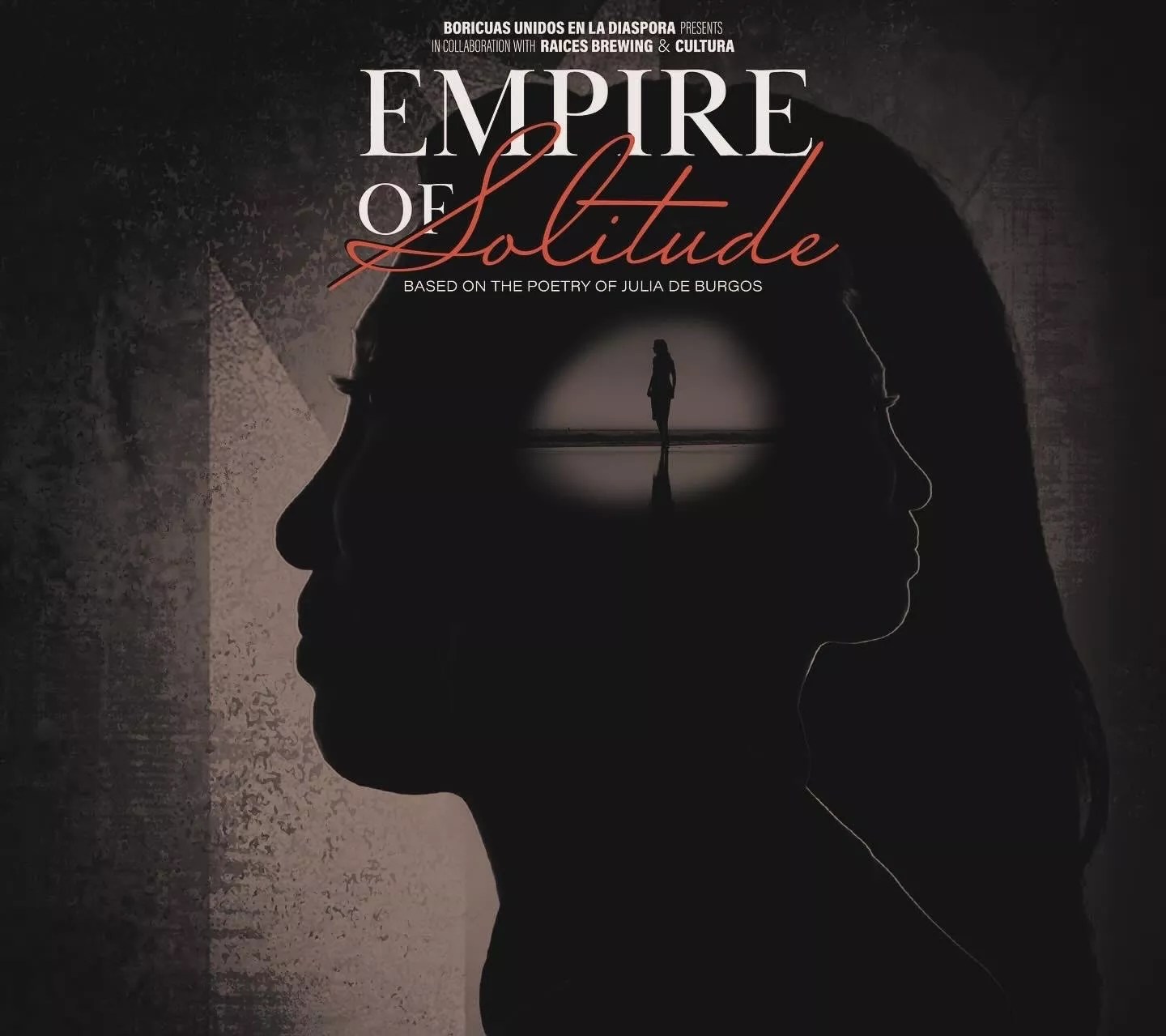
Jon Marcantoni

Audio By Carbonatix
Julia de Burgos is considered the foremother of Puerto Rico and Nuyorican poetry – but Jon Marcantoni, playwright and founder of Denver’s new Flamboyán Theatre, says she’d fit right in with the social media “Girl Boss” poetic movement of the modern day. “Some of her work really sounds like it could have been written in the 2020s,” he says, “telling women, ‘Hey, keep on – you got this, sister.’ That’s the sort of tone it had, and this was work coming out in the 1940s.”
The company’s production of Empire of Solitude, debuting on Friday, August 9, and running through August 18 at Buntport Theater, takes a deep and intimate look at de Burgos and her legacy. Marcantoni says he’s taken an experimental approach to telling her story. “The play takes place entirely in her mind,” he says, “and the four characters involved represent the four major themes of her poetry: revolutionary politics, society’s expectations of women, the love for poetry itself, and her own conceptions of ideas of the feminine and gender. The play uses those characters to tell the story of her life – particularly the last few days of her life.”
This isn’t the first time Marcantoni has mined his Puerto Rican family heritage to tell a story. His first play was Puerto Rican Nocturne, which enjoyed a successful run at the Bug Theatre in 2022. While Marcantoni was born in Philadelphia, his mother and father were both born in San Juan, in the same hospital. His family moved a lot: California, Maryland, Georgia, North Carolina – and the constant through all that change was his abuela’s house in Fajardo, Puerto Rico. “I grew up feeling more at home there than anywhere,” he insists. “It’s a very small fishing town on the eastern coast. My abuela’s house was on a grassy hill overlooking the marina, in a crescent with hills to either side. The lawn was lined with palm trees. It was idyllic, especially since it was also an escape from a not very happy household.”
Part of that stress stemmed from Marcantoni’s political views on Puerto Rican independence. “My family was very assimilationist,” he says. “They were not very pleased that I became very pro-independence very early. I remember doing an eighth-grade history project on Pedro Albizu Campos” – the president and spokesperson of the Nationalist Party of Puerto Rico from 1930 until his death in 1965.
While he knew a bit about Julia de Burgos when he decided to write a play about her, Marcantoni learned a lot more during his research. “I didn’t know about the circumstances surrounding her death, for example,” he says. “To this day, no one knows what happened to her in the last nine days of her life.”
She left her sister’s home on June 28, 1953, and was found passed out on a street in Harlem on July 6; she died in the hospital shortly after. What happened in the interim is a mystery. It is known that the FBI was following her because of her independence activism. She’d also recently been committed to a mental asylum on what was then called Welfare Island, now Roosevelt Island, and was severely depressed. She had a drinking problem, too. It’s very possible she drank herself to death, that she was just over it. “The title of the play actually comes from the last poem she wrote, ‘Farewell on Welfare Island,’ which does end with the line ‘This is my farewell to the world,'” Marcantoni notes. “So the idea that she self-destructed is there, but there’s also so much underlying it.”

Flamboyán Theatre
Empire of Solitude is designed to explore those underlying issues. “From all the research I’ve done, it really just seemed like she was so tired,” Marcantoni says. “She was sick of being discriminated against: for being a woman, for being Puerto Rican, for being an activist – all of it. She really felt in isolation. She was an incredibly confident and forward-thinking woman with a lot of self-love. The world just didn’t love her back.”
Of course, this was the early 1950s. “There was this sexist narrative that came up after she died,” says Marcantoni, that she died of a broken heart. “But the people who knew her said she wasn’t heartbroken – she was breaking hearts. Men threw themselves at her constantly, but she wasn’t going to settle. She didn’t want to be a prisoner to anyone. She wanted to be treated with a level of respect that men back then, quite frankly, wouldn’t have given her.”
The story of Julia de Burgos is only one of the many Puerto Rican stories that Marcantoni wants to tell in coordination with his newly founded Flamboyán Theatre, which will be taking up residence at the Three Leaches space at 1560 South Teller Street, in Lakewood’s 40 West Arts District. “We’re so honored that the Three Leaches chose us for this opportunity, and it shows how forward-thinking they are as a company,” Marcantoni says. “Together, we want to show another path forward for theater companies in the region, one that is collaborative and multicultural.”
But first, before the move west, Empire of Solitude will be at Buntport. “Julia de Burgos was a woman born in the wrong time,” Marcantoni says. “But it’s that which makes her and her poetry so resonant to us today.”
Empire of Solitude opens Friday, August 9, and runs through August 18 at Buntport Theater, 717 Lipan Street. Tickets are available now; find more information on the Flamboyán Theatre website.